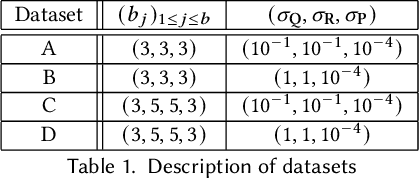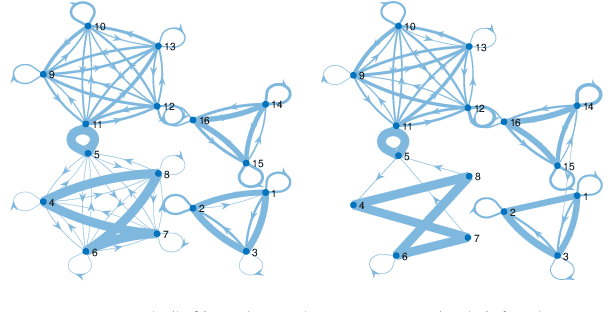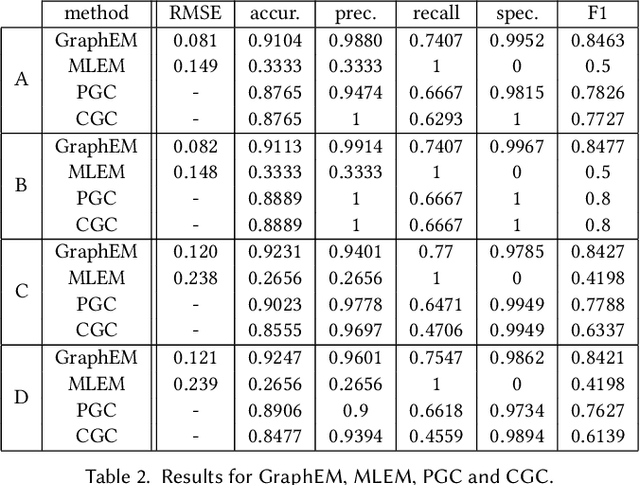Émilie Chouzenoux
Graphs in State-Space Models for Granger Causality in Climate Science
Jul 20, 2023



Abstract:Granger causality (GC) is often considered not an actual form of causality. Still, it is arguably the most widely used method to assess the predictability of a time series from another one. Granger causality has been widely used in many applied disciplines, from neuroscience and econometrics to Earth sciences. We revisit GC under a graphical perspective of state-space models. For that, we use GraphEM, a recently presented expectation-maximisation algorithm for estimating the linear matrix operator in the state equation of a linear-Gaussian state-space model. Lasso regularisation is included in the M-step, which is solved using a proximal splitting Douglas-Rachford algorithm. Experiments in toy examples and challenging climate problems illustrate the benefits of the proposed model and inference technique over standard Granger causality methods.
A probabilistic incremental proximal gradient method
Jan 05, 2019

Abstract:In this paper, we propose a probabilistic optimization method, named probabilistic incremental proximal gradient (PIPG) method, by developing a probabilistic interpretation of the incremental proximal gradient algorithm. We explicitly model the update rules of the incremental proximal gradient method and develop a systematic approach to propagate the uncertainty of the solution estimate over iterations. The PIPG algorithm takes the form of Bayesian filtering updates for a state-space model constructed by using the cost function. Our framework makes it possible to utilize well-known exact or approximate Bayesian filters, such as Kalman or extended Kalman filters, to solve large-scale regularized optimization problems.
 Add to Chrome
Add to Chrome Add to Firefox
Add to Firefox Add to Edge
Add to Edge